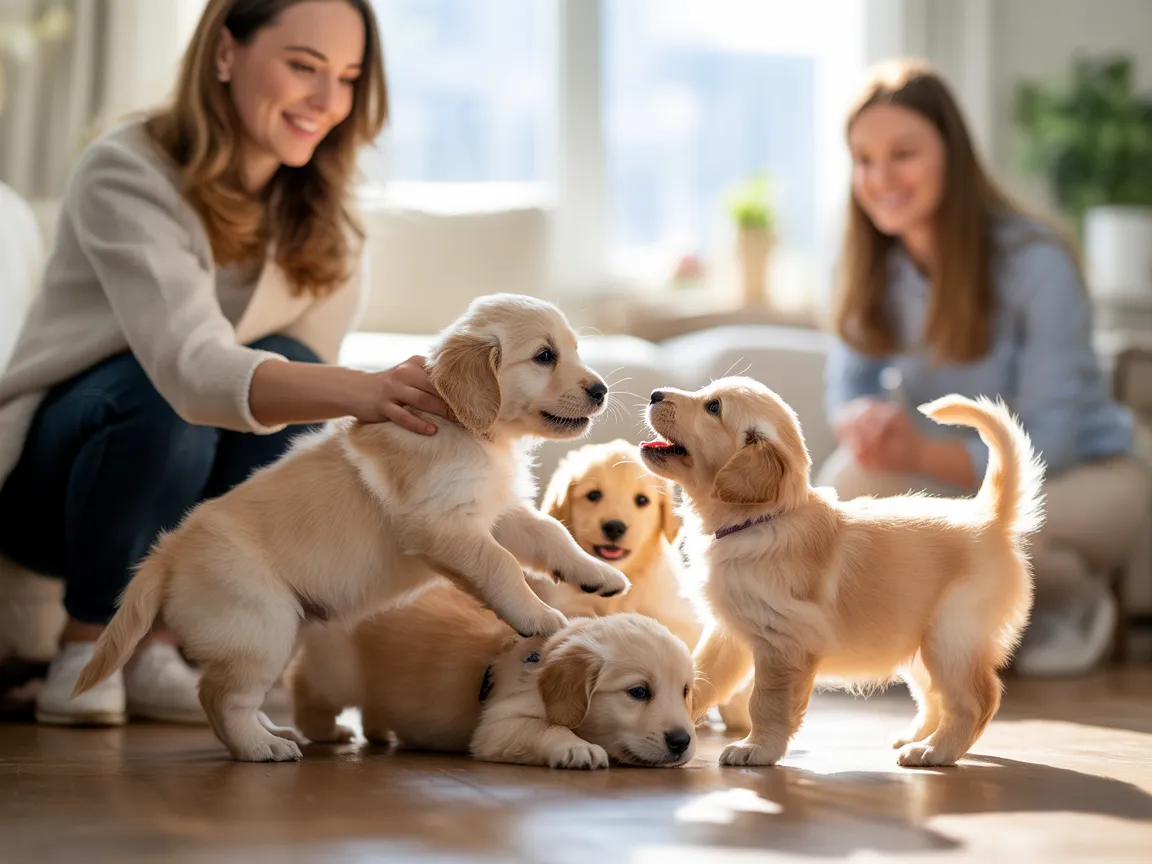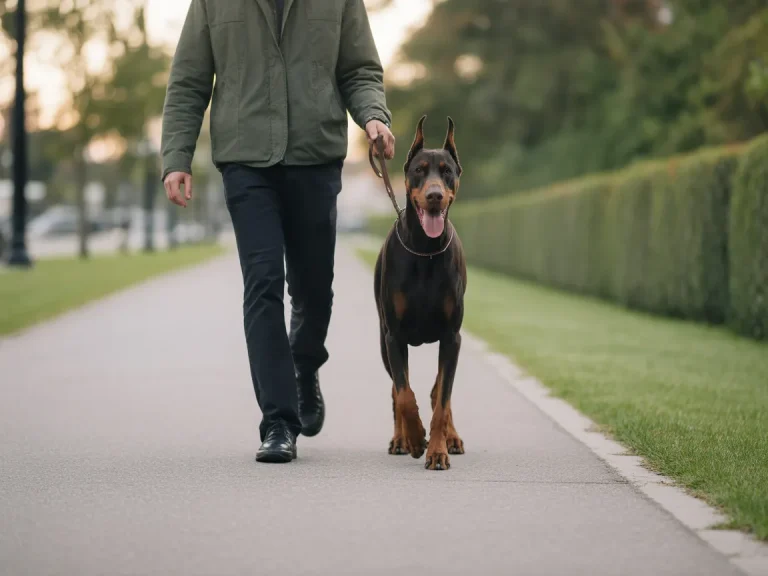Golden Retriever Puppy Guide: What to Know Before Bringing One Home
Bringing home a golden retriever puppy is a bit like inviting sunshine into your life — warm, joyful, and endlessly affectionate. But along with the cuddles comes responsibility. Goldens are gentle, incredibly smart, and deeply loyal, yet raising one takes structure, patience, and time. Whether you’re a brand-new dog parent or expanding your furry family, knowing what to expect early on helps everything go smoother.
Understanding the Golden Retriever Temperament
Golden retrievers are the social butterflies of the dog world. They live for connection — with you, your kids, your neighbors, even the mailman if given the chance. They’re rarely aggressive and are known for staying calm and sweet, which makes them ideal family companions.
According to the American Kennel Club, golden retrievers have consistently ranked among the most family-friendly breeds thanks to their gentle, people-oriented nature.
But that love of people means they hate being alone. A lonely golden won’t sit quietly and journal about its feelings — it might turn your throw pillows into “modern art.”
Puppy goldens are easy to teach because they’re eager to please, but they also get distracted fast. One second they’re focused on “sit,” the next they’re spiritually connected to a passing leaf. That’s why positive, patient guidance works best. They respond beautifully to praise, routine, and kindness — never force.
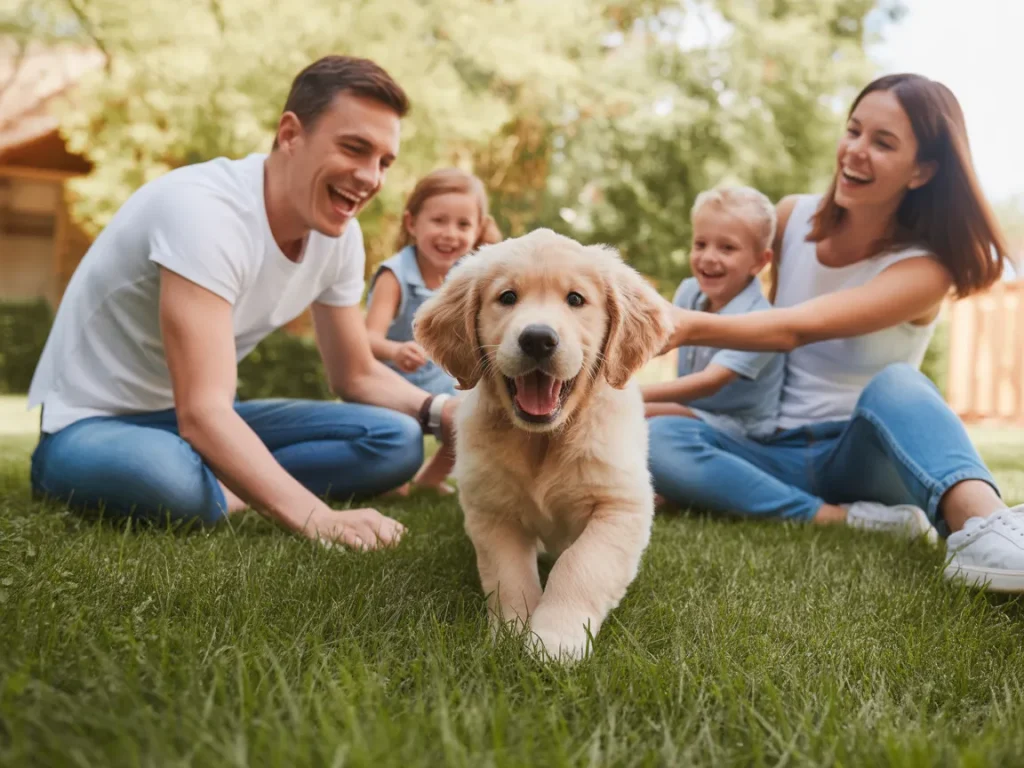
Preparing Your Home for a Golden Retriever Puppy
Before your puppy arrives, assume their mission is to explore everything. Golden retrievers are natural investigators — with paws, mouths, and wildly enthusiastic tails.
Do a quick safety sweep:
- Hide electrical cords
- Move toxic plants
- Relocate your favorite shoes before regret kicks in
Then get the essentials ready early so your puppy feels secure from day one. At minimum, you’ll want:
- A comfortable crate for naps and downtime
- Stainless steel food and water bowls
- Chew toys strong enough to survive teething chaos
- Basic grooming tools (yes, you’ll need them early)
- A collar, leash, and ID tag
These little fluff balls grow fast — sometimes double their size in just a few weeks. Choose adjustable gear and be ready to size up their crate sooner than you expect.
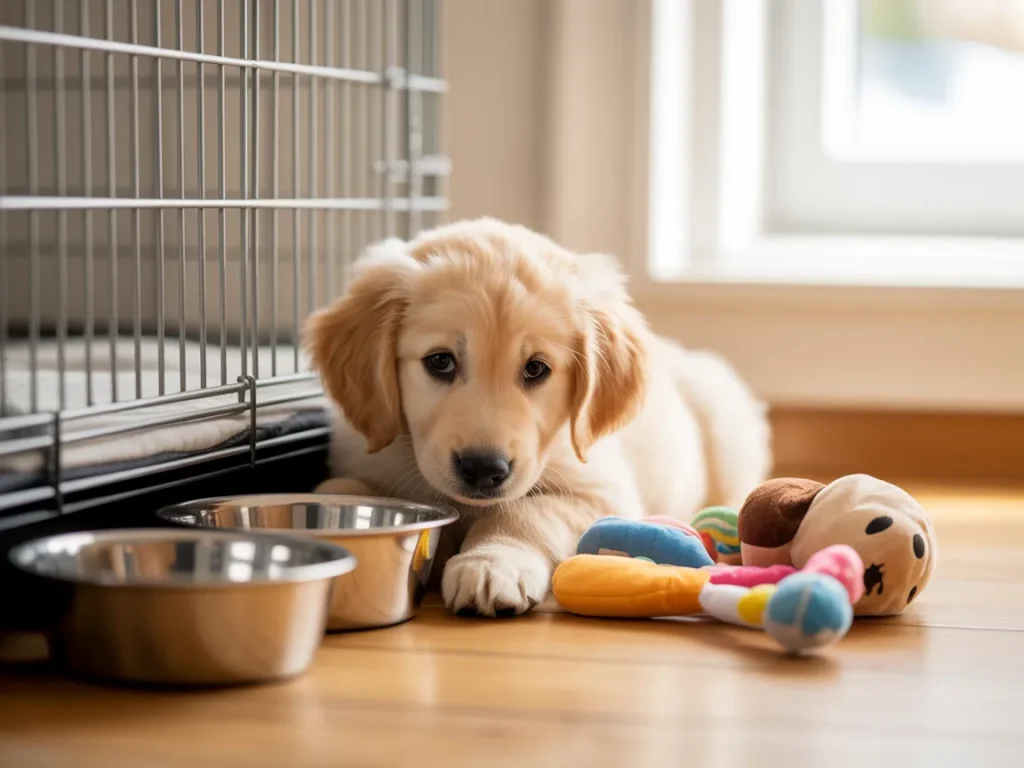
Choosing the Right Breeder or Rescue
Where your golden retriever comes from matters — a lot. A good breeder or rescue sets the tone for your dog’s health and temperament before they even come home.
A responsible breeder will:
- Share health test results for both parents (hips, elbows, heart, eyes)
- Let you meet the mother and see where the puppies are raised
- Ask you questions — lots of them — to make sure it’s a good match
If your heart leans toward adoption, golden retriever rescue groups are an incredible option. Many purebred goldens end up needing new homes through no fault of their own. Adopting can be just as rewarding — and you’re giving a very good dog a second chance at a great life.
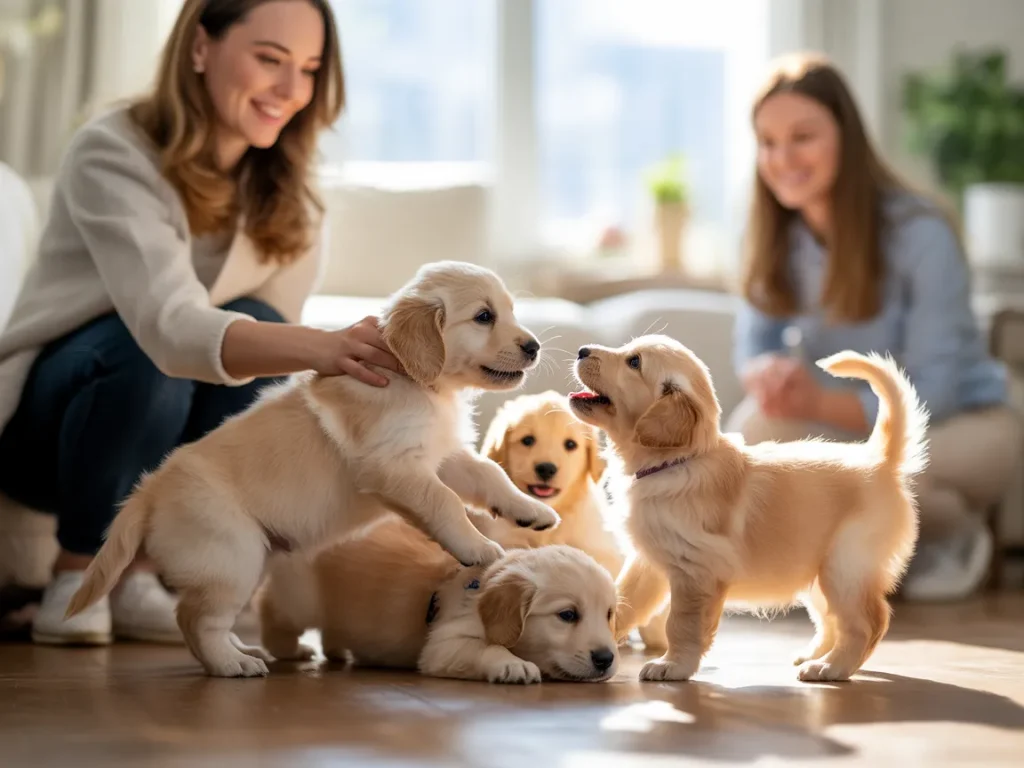
Nutrition and Feeding Guidelines
What you feed your golden retriever puppy now directly affects their health for years to come. During the first year, their body is doing serious building work — bones, joints, muscles — all developing at full speed. That’s why it’s important to choose a large-breed puppy formula, not just any “puppy food.” These formulas are designed to support steady, not rapid, growth, which helps protect their joints from stress.
Veterinary experts at VCA Animal Hospitals explain that large-breed puppy formulas are specifically designed to prevent overly rapid growth that can stress developing joints.
Most golden pups do well on three meals a day until about six months old. After that, you can switch to two meals daily.
Avoid “buffet-style” free-feeding — goldens are enthusiastic eaters and will absolutely turn snack time into a lifestyle if given the chance.
Treats are fine, but keep them under 10% of daily calories, and always keep clean water available.
This is also a great time to start building calm habits. A simple “sit before eating” creates structure and teaches impulse control long before formal training begins.
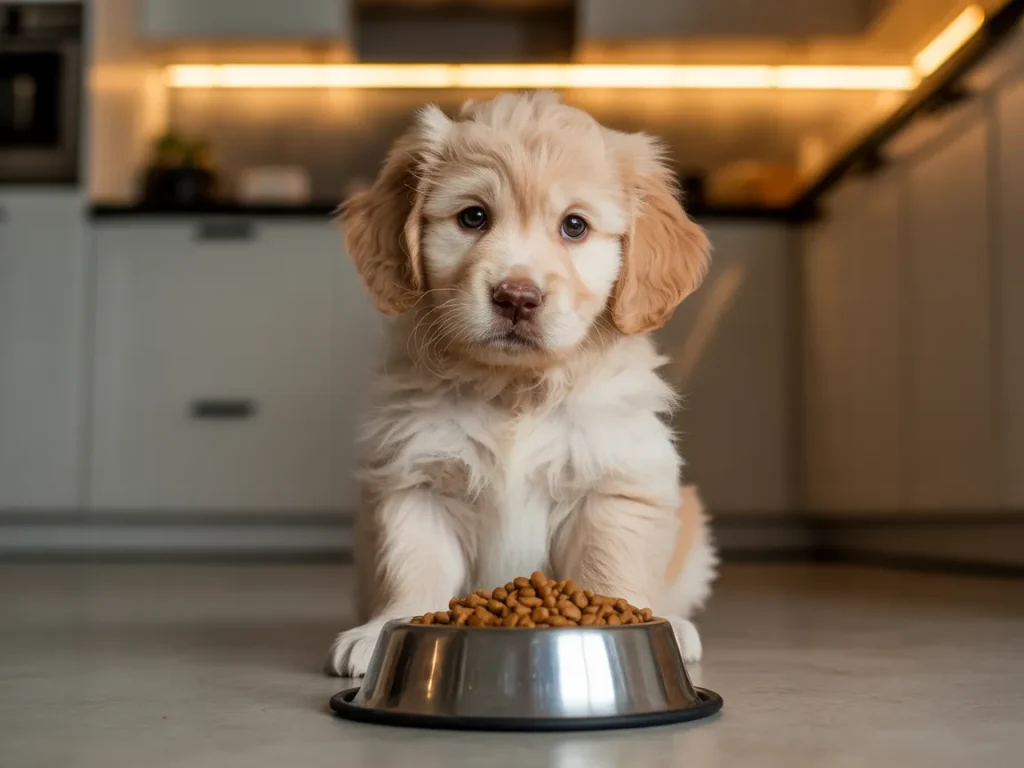
Early Training and Socialization
Training starts the moment your golden walks through the door — whether you intend it to or not. The good news? Golden retrievers love learning. They respond best to praise, consistency, and small rewards, not pressure or force.
Their attention span is hilariously short at this age, so keep sessions to 5–10 minutes.
Your early priorities should be:
- Potty training using a consistent schedule and crate
- Foundation cues like sit, stay, come, leave it
- Learning not to pull or launch forward on leash
- Soft, bite-controlled play (no land-shark stage allowed)
Equally important is socialization — safe exposure to new people, sounds, flooring types, and environments before 16 weeks of age. A well-socialized golden becomes the kind of adult who walks into new situations with curiosity, not fear.
If available, puppy kindergarten classes are worth it — they build confidence, manners, and your bond at the same time.
<puppy-training.webp>
Grooming and Shedding
Golden retrievers are known for their stunning, silky coats — and for the fact that those coats will soon be everywhere. They shed lightly year-round, and then go full “hair tornado” during seasonal changes in spring and fall.
Start grooming early so it becomes normal and enjoyable for them.
Brush your puppy at least twice a week using a slicker brush or undercoat rake. During heavy shed seasons, daily brushing helps keep your floors (somewhat) sane.
Bathing every 4–6 weeks is usually enough, but don’t forget the little things — ears and paws often need cleaning more frequently. And yes, regular nail trims are essential to prevent discomfort and posture issues as they grow.
Grooming isn’t just maintenance — it’s bonding time. Most goldens end up loving it.
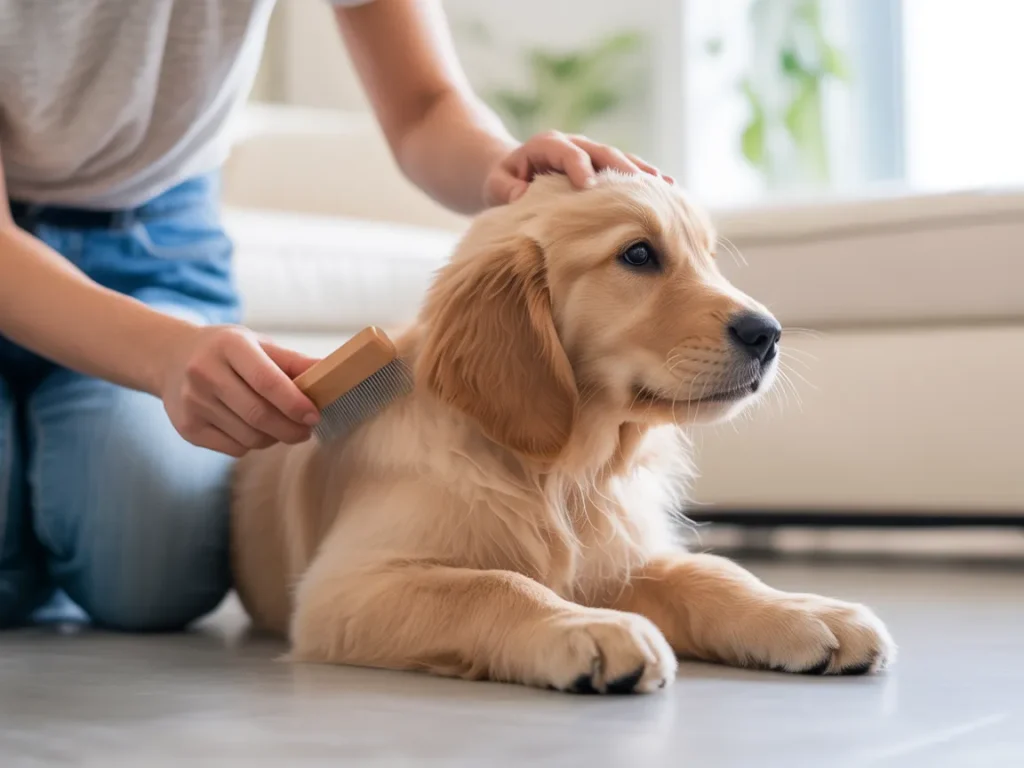
Exercise and Mental Stimulation
Golden retrievers were born to move. They were originally bred to retrieve game out in the field, so even as puppies, they’ve got energy to spare — and curiosity to match. That doesn’t mean long hikes right away, though. In the early months, stick to short, gentle walks and indoor play sessions, slowly increasing as their joints and bones develop.
A bored golden is a golden on a mission — usually one that involves rearranging your belongings with their teeth. To prevent that, introduce puzzle toys, short fetch sessions, or soft tug games to keep both body and brain engaged.
As adults, most goldens need at least an hour of active exercise per day. Not just “yard time.” They want interaction — an activity with you. Fetch, swimming, light agility, even hide-and-seek — these aren’t just workouts, they’re golden-approved love languages.
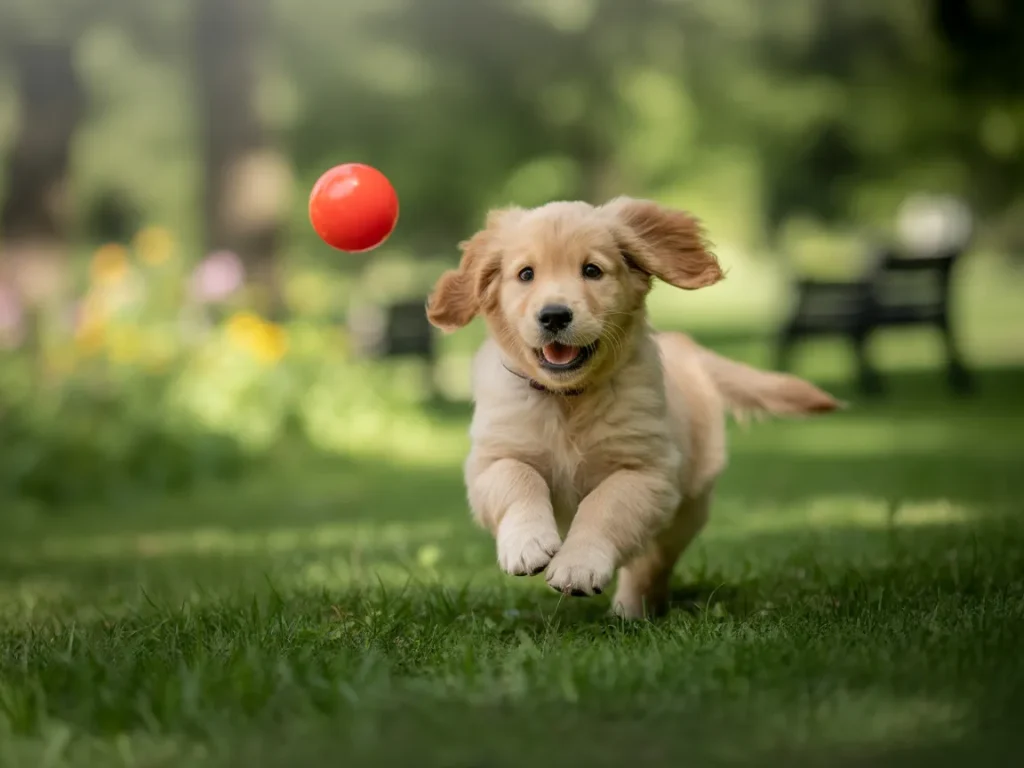
Health and Vet Care
Golden retrievers are generally healthy, but like many popular breeds, they do have genetic predispositions — most commonly hip and elbow dysplasia, allergies, and heart or eye conditions. Staying proactive is key.
Researchers at Cornell University note that hip dysplasia is especially common in medium and large breeds like golden retrievers, making weight control and early screening essential.
Your vet will guide you through:
- Core puppy vaccinations
- Deworming and parasite prevention
- When to spay or neuter
- Early screenings if needed
Don’t forget dental care — gum issues start earlier than most new owners expect.
Maintaining a healthy weight might be the most important thing you do long-term. Goldens love food with a passion that borders on spiritual, but extra weight puts serious strain on their joints and can shorten their lifespan. Exercise + portion control is the magic duo.
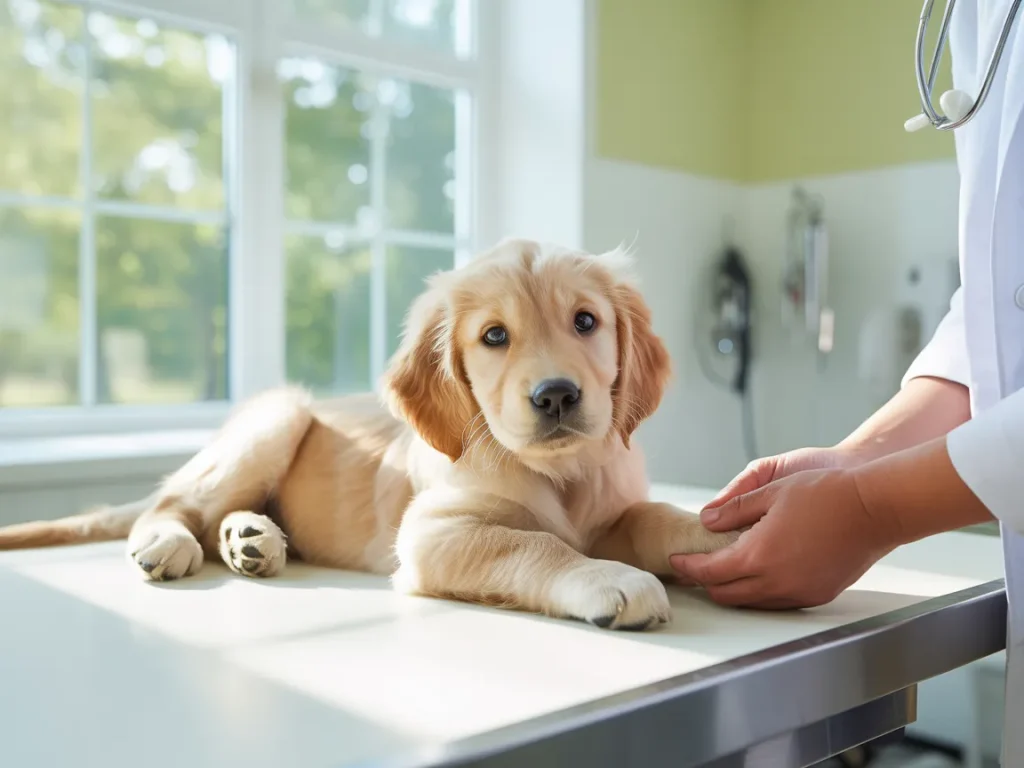
Final Thoughts
Bringing home a golden retriever puppy isn’t just getting a pet — it’s inviting in a warm, joyful presence who thinks you are the most fascinating thing on earth.
They’ll follow you from room to room, celebrate every breakfast like it’s Christmas morning, and curl up at your feet like they’ve always belonged there.
With preparation, clear guidance, and steady care, your puppy will grow into exactly what the breed is known for — a loyal companion for life. And before long, you’ll wonder how you ever lived without that golden smile watching your every move.
